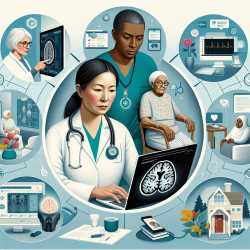Introduction
The 2014 Ebola Virus Disease (EVD) outbreak in West Africa posed significant challenges for global health systems, including those in the United States. The ethical dilemmas faced by emergency departments (EDs) during this crisis provide valuable insights for healthcare practitioners. The position paper by the American College of Emergency Physicians, the Emergency Nurses Association, and the Society for Academic Emergency Medicine offers guidance on these ethical issues.
Key Ethical Issues
Emergency departments are often the first point of contact for patients with undiagnosed infectious diseases. This reality raises several ethical concerns:
- Resource Allocation: How should resources be allocated for rare but potentially high-impact events like an Ebola outbreak?
- Standard of Care: Should there be a different standard of care for Ebola patients compared to those with less contagious diseases?
- Duty to Treat: Are healthcare providers obligated to place themselves at risk when treating highly infectious patients?
Implementing Ethical Practices
Practitioners can enhance their ethical decision-making by considering the following strategies:
- Training and Preparedness: Regular training on infection control and use of personal protective equipment (PPE) is crucial. This ensures that staff are prepared to handle cases like Ebola safely.
- Support for Volunteerism: Encouraging and supporting healthcare providers who volunteer in outbreak zones can help contain diseases at their source, reducing the risk of domestic spread.
- Interdepartmental Cooperation: Developing protocols for resource sharing and support between hospitals can enhance the collective response to outbreaks.
Encouraging Further Research
While the position paper provides a robust framework, ongoing research is essential to refine ethical guidelines. Practitioners are encouraged to engage in research that explores:
- The impact of different resource allocation strategies during outbreaks.
- The effectiveness of various training programs in preparing staff for infectious disease outbreaks.
- The long-term effects of ethical decision-making on healthcare provider well-being and patient outcomes.
Conclusion
The ethical challenges presented by the Ebola outbreak underscore the importance of preparedness and ethical clarity in emergency departments. By implementing the recommendations from the position paper and engaging in further research, healthcare practitioners can enhance their ability to respond to future infectious disease challenges effectively.
To read the original research paper, please follow this link: Ethical Issues in the Response to Ebola Virus Disease in US Emergency Departments: A Position Paper of the American College of Emergency Physicians, the Emergency Nurses Association and the Society for Academic Emergency Medicine.










